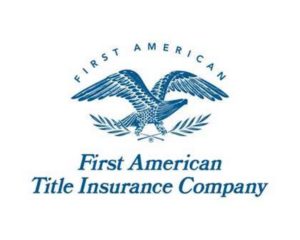Frequently Asked Questions
You have questions. We have answers.
We’re full for 2023 – Please check back in December 2023
We Promise To...
Put Customers First!
Commit to Excellence!
Always Do the Right Thing!
Give Back to the Community!
What is Title?
A title is a legal concept that proves ownership. It is your legal right to own, possess, use, control or dispose of real property—land. The title takes into account all previous land ownership, uses, and transfers of land use and ownership. In order to legally transfer real estate property, you must perform a title search to make sure the title is clear or free of defects or inappropriate encumbrances.
What is Title Insurance?
Title insurance protects the buyer and/or the lender from any future losses that might result from any possible title defects or encumbrances.
What is a Title Defect or Encumbrance?
A title defect is a problem associated with the title that impairs your ownership rights to the property. Possible title defects include errors or omissions in the public records, forgery, confusion caused by similar names, signatures by minors, mental incompetence, fraud, incorrect marital status, etc. For example, a title defect could be an undisclosed heir of a previous owner suddenly appearing to make an ownership claim to your land.
An encumbrance is a claim made upon the land by someone other than an alleged landowner. For instance, your local power company may have a ground or aerial easement—a limited right to your property—to install electrical power lines to serve your house or neighbor's house. Although a utility easement is often an appropriate encumbrance, other encumbrances may not be acceptable. If you are borrowing money to purchase your house, your lender will want assurance that no one else has a claim against your house. Your house is the collateral for your loan; therefore, your lender will require clear title—title free of any outstanding defect or unacceptable encumbrance—before approving your loan.
Why Consider Purchasing Title Insurance?
There are two types of title insurance policies: lender's and owner's.
A lender's policy protects the lender's investment if a title defect voids the owner/buyer's title to the property. The price of a lender's policy doesn't typically represent the full property value, and the amount of protection decreases as the mortgage balance decreases and then terminates when the mortgage is paid off.
The owner's policy ensures that the landowner/homeowner is protected from any title defects that may threaten their title to the property. For just one upfront fee, it insures the value of the property and lasts as long as you or your heirs own it.
In addition to title loss coverage under a lender or owner policy, a title insurer must also pay for any and all costs associated with defense against title challenges and, if unsuccessful, the title insurer must also pay for any reduction in land value as a result.
What Does Title Insurance Cover?
Title insurance protects you and/or your lender from losses resulting from claims against your ownership of real estate. It is unique because it provides coverage for problems or "hidden risks" (errors, forgeries, unpaid taxes, etc.) that possibly occurred before you took title to the property—yet can jeopardize your ownership rights. Title insurance coverage includes:
• Protection from financial loss (up to the face amount of the policy) due to covered claims against your title
• Payment of legal costs to defend against covered claims
• Payment of successful claims against your title (up to the face amount of the policy)


